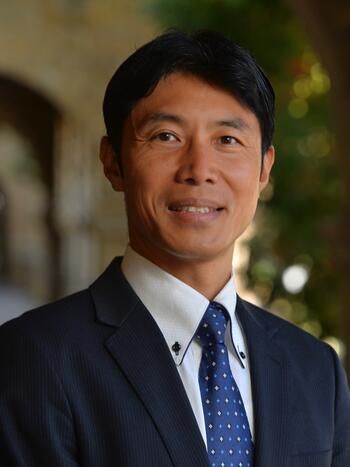Global Affiliates Research Presentations (session 1 of 5)
Global Affiliates Research Presentations (session 1 of 5)
Thursday, May 9, 201912:00 PM - 2:00 PM (Pacific)
Encina Hall, Third Floor, Central, C330
616 Jane Stanford Way, Stanford, CA 94305
The format of this presentation is each of the four speakers will have approximately 15 minutes to present their research. This will be followed by a short period of 5-10 minutes for any questions or comments from the audience.
In this session of the Global Affiliates Research Presentations, the following will be presented:
Tetsuji Ito, Development Bank of Japan, "Major League Baseball Team Management and Their Contribution to Regional Economy — with Comparison and Suggestions to Japanese Professional Baseball"
 The average annual salary of an MLB player has more than quadrupled since 1995 reaching the current high of over $4 million. Since 1995, the highest annual salary went from $10 million to now well over $30 million and is expected to continue to rise. This has been made possible by the growth of the MLB's market size itself - currently at $100 billion which is more than seven times higher than the 1995 levels. However, the average attendance per MLB game is decreasing and the average age of the MLB fan is increasing which could be a problem. On the other hand, the Japanese professional baseball market has grown by only 1.5 times over the same period. In his research, Ito analyzes MLB's growth factors and studies their contribution to the regional economy, as well as their implications for the Japanese professional baseball market and regional economy.
The average annual salary of an MLB player has more than quadrupled since 1995 reaching the current high of over $4 million. Since 1995, the highest annual salary went from $10 million to now well over $30 million and is expected to continue to rise. This has been made possible by the growth of the MLB's market size itself - currently at $100 billion which is more than seven times higher than the 1995 levels. However, the average attendance per MLB game is decreasing and the average age of the MLB fan is increasing which could be a problem. On the other hand, the Japanese professional baseball market has grown by only 1.5 times over the same period. In his research, Ito analyzes MLB's growth factors and studies their contribution to the regional economy, as well as their implications for the Japanese professional baseball market and regional economy.
Yangming Li, PetroChina, "The Potential Uses of AI for China National Petroleum Corporation (CNPC)"

Yuki Sakai, Mitsubishi Electric, "Software Quality Assurance for Collaboration with Startups"

Col. Masahiro Shizu, Japan Air Self Defense Force, "Relation in Cross Domain Operations Between Japan and the U.S."

